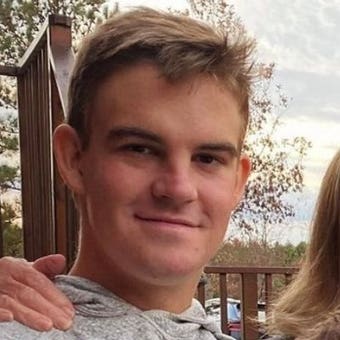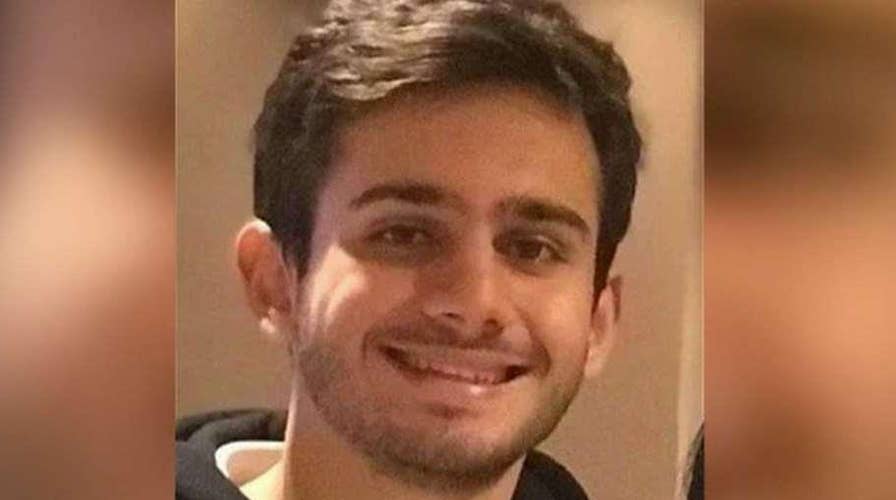Family of Cornell student found dead after fraternity party searching for answers
The parents of Antonio Tsialas speak out on 'Fox & Friends' on their struggle to find any information on the circumstances surrounding their son's mysterious death.
The investigation into the death of Cornell University freshman Antonio Tsialas, found deceased in Fall Creek gorge two days after a fraternity party last year, is closed.
The Cornell University Police Department announced this week that it conducted 150 interviews and followed up on 100 additional leads in the investigation, but was not able to figure out how or why Tsialas ended up at the gorge in October 2019.
The night he disappeared, Tsialas attended "an unregistered and clandestinely planned recruiting event at the Phi Kappa Psi fraternity house," where potential new members binge drank.
OHIO UNIVERSITY SUSPENDS ALL FRATERNITIES AMID HAZING ALLEGATIONS
According to a Cornell University report on the event, the invitees moved through the fraternity house drinking an assortment of alcohol, including tequila, vodka, and a milk and rum concoction.
"Multiple drinking games were facilitated by chapter members at the event," the report says. "[Potential new members] described rotating through themed rooms with different drinking challenges designed to encourage binge drinking. PNMs were encouraged to 'yack' (induce vomiting) and continue drinking."
It is unclear how or why Tsialas ended up at the gorge, where he was found dead two days after the party. The death was "accidental," the report said, "due to a fall from a height."
UNIVERSITY OF BUFFALO FRESHMAN, 18, DEAD AFTER SUSPECTED FRATERNITY HAZING
Phi Kappa Psi was barred from hosting parties at the time of the event due to prior infractions. Cornell University revoked recognition of the fraternity after a hearing.
Tsialas' mother, Flavia Tomello Tsialas, wrote on Facebook that she had dinner with her son the night he vanished, but that weekend turned into her "worst nightmare."
"Our family is heartbroken and devastated over the loss of our son," she wrote. "He was an exceptional young man and a bright scholar. Antonio had done everything right in life and he was fulfilling his dreams at Cornell."
CLICK HERE TO GET THE FOX NEWS APP
Tsialas said she now hopes her son's death will inspire a cultural change at U.S. universities.
“I would like to see these deadly traditions and primitive practices be forever removed out of our colleges, so that hazing deaths do not occur in the future," she told The Cornell Daily Sun.
"I hope that this tragedy will force schools to create an environment for students to grow not only in knowledge, but also in love, inclusion and compassion."



